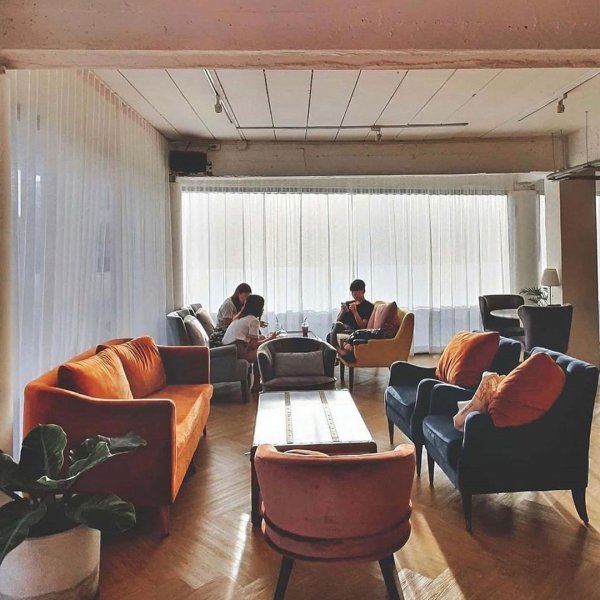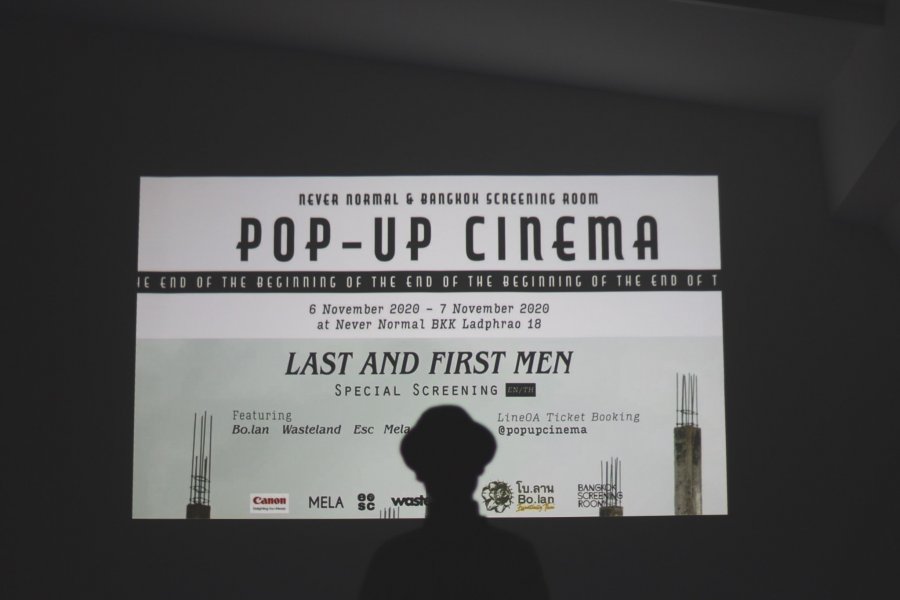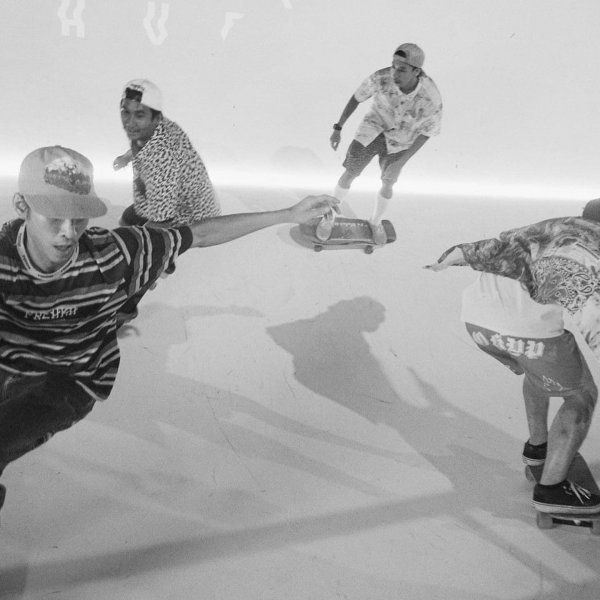“In my line of work, the only color you see is black,” says Narin, as he guides us through his daily routine as a colorist for an advertising agency, the work that largely defined his life before he opened
Never Normal, a four-story creative community space on Lad Phrao Soi 18. “You usually start with this dark, blank screen before adding any colors, and that absence of colors makes me feel quite lonely.”
Image courtesy of Never Normal
Working in post-production, Narin doesn’t have much time to converse with other people except during ad briefing meetings or after-work hangouts. Yearning to fill the void, to account for this lack of connectivity, Narin and three friends who also work in creative agencies teamed up in 2019, tapping into their networks to build a space that would add color to their after-work lives. Now, only Narin is in charge of Never Normal, but that mission hasn’t changed.
Like other creative practitioners, Narin believes that dialogue drives artwork—film, music, photography— and to create dialogue, you need an appropriate space.
“Since I rarely have a chance to talk with anyone, I wanted to create a place where people could sit and talk, a place that could help spark new ideas,” Narin says. That desire has been translated into the building’s design. “Unlike my work for my day job, the building is like a blank white canvas, where colors can mingle with one another to create something more profound.”
Climbing the four floors of the building, you’ll find a cafe named WaWa, which is usually packed with people representing the city’s rich tapestry of creative identities: underground musicians, film students, photographers. Narin doesn’t just use the space as a way to draw like-minded people together, though. He also uses it to host a variety of creative events.
In its early days, the place was also known as a meeting spot for fans of Jumpol “Off” Adulkittikorn, a former co-founder and rising actor from Grammy. As it gained its footing, its mission gradually shifted towards the arts. DJ talks, chef’s tables, kava ceremonies, coffee- tasting sessions, film screenings led by the founders of the Bangkok Screening Room—“They’re all over the place,” Narin says of the events they’ve hosted.
Image courtesy of Never Normal
This diverse line-up has attracted equally diverse crowds. That has helped Never Normal form a broader community that Narin says has expanded the scope of knowledge exchange.
“It’s like my university days,” Narin explains, recalling memories of his time studying film at Bangkok University. “Like how seniors were willing to lend very expensive cameras to a newbie like me—I want to provide others with the same experience.”
Within the past two years, Never Normal has formed bonds with several performing artists and DJs. Now, Narin is planning to turn Never Normal into a production house and make use of his experience in media to push artists’ work online. Noticing that the scarcity of chances that onsite events can be hosted again, Narin is currently collaborating with people from Kantana Sound Studio to help bring some of their offline experiences online, too.
While pandemic regulations have made the place feel less crowded than in the past, Never Normal has sought new ways to engage the community. Narin has hopped on the rising trend of surfskating, for example, by constructing a small private skate park.
Dubbed
Never Wave, the skate park draws experienced and young surfers alike. It also keeps the community buzzing, drawing energy to Lad Phrao, giving locals more to do in their own backyard.
Image courtesy of Never Wave
Like other casual connections that his space has nurtured over the years, Narin believes that Never Normal could help people who are struggling to develop their portfolios or find new opportunities in this shaken up world. Currently, the space is being used by e-sport players who need better bandwidth for gaming. In the future, it could host underground techno nights, coffee-cupping sessions, or workshops again.
Narin’s reason for founding Never Normal may have come from a personal desire, but within the last two years, his personal endeavors and his network have expanded, and he’s been able to have a larger impact on the city’s creative communities. Through his work, he’s hoping emerging artists won’t have to wander alone to find their own way out of the dark.

















